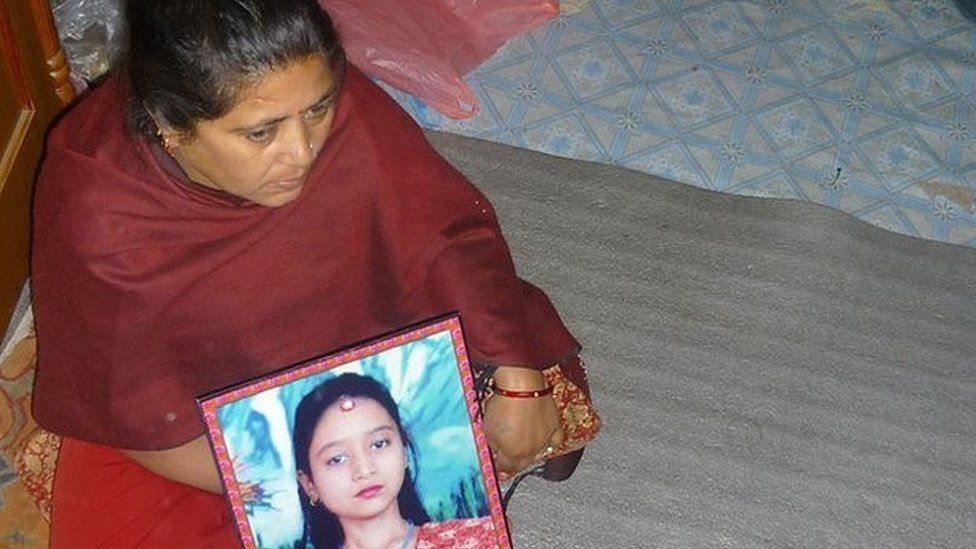Maina Sunuwar murder: Nepal soldiers convicted of war-era killing
- Published

A Nepal court has sentenced three former soldiers to 20 years in jail for killing a teenage girl during the decade-long Maoist insurgency.
Maina Sunuwar, 15, was tortured and killed in an army base in 2004 in a case that came to symbolise the horror of wartime abuse.
It is the first time troops have been convicted over the 1995-2006 conflict.
The three men were not present in court and rights groups fear they may not serve their sentences.
"I'm glad the court has understood our plight. But our fight is not over. I'm worried the decision might be limited to paper. The state must implement the court's decision," Maina's mother Devi Sunuwar told AFP news agency.
The three soldiers - Amit Pun, Sunil Adhikari and Boby Khatri - had been convicted by a court martial in 2005 which jailed them for six months and issued them with fines for negligence and not disposing of Maina's body correctly.
Pun and Adhikari resigned from the army after the court martial and Khatri, their commander at the time, retired after missing out on promotion in 2009.
The court in Kavre acquitted a fourth soldier of higher rank, Niranjan Basnet, saying he had only been involved in Maina's arrest and not her killing.
"We're happy at the conviction. But we don't want to see any institution protecting criminals. They are now convicted criminals. The army should respect the decision of the court and hand them over to the courts as per the law," Mandira Sharma from the Advocacy Forum, an NGO that brought the case before the court, told the BBC.
Maina was arrested at her home in Kharelthok village in central Nepal and then interrogated for suspected links to Maoist rebels by soldiers who were looking for her mother.
She was subjected to water torture and electrocution before being killed.
The Nepali army has not commented on the verdicts, which can be challenged in higher courts.
More than 17,000 people were killed during the civil war, which ended with a peace deal between the Maoist insurgents and government forces.
Both sides are accused of human rights abuses but rights groups say little has been done to hold perpetrators to account and many of those accused continue to hold high-ranking government and military positions.
This is only the second conviction ever for crimes during the civil war.
In 2014, five former Maoist rebels were jailed for two years for torturing and killing a journalist, a sentence that was criticised for being too lenient.
Police have not yet carried out a Supreme Court order to arrest a Maoist leader for a conflict-era murder.
The army and the former rebels say conflict-era cases should be investigated by a truth and reconciliation commission formed in 2015 instead of being settled through the regular courts.
The commission has collected more than 58,000 complaints from conflict victims. But BBC Nepali's Phanindra Dahal says feuding between members, a lack of political support and the absence of clear legal provisions mean it has made little headway.
- Published26 August 2016
- Published14 March 2013